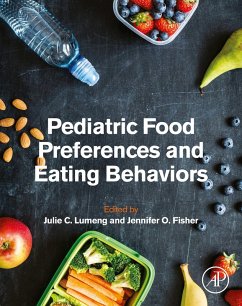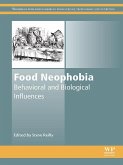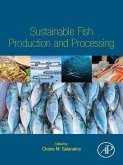Written by leading researchers in the field, each chapter presents basic concepts and definitions, methodological issues pertaining to measurement, and the current state of scientific knowledge as well as directions for future research.
- Delivers an up-to-date synthesis of the research evidence addressing the development of children's eating behaviors, from birth to age 18 years
- Provides an in-depth synthesis of the basic eating behaviors that contribute to consumption patterns
- Translates the complex and sometimes conflicting research in this area to clinical and public health practice
- Concludes each chapter with practical implications for practice
- Presents the limits of current knowledge and the next steps in scientific inquiry
Dieser Download kann aus rechtlichen Gründen nur mit Rechnungsadresse in A, B, BG, CY, CZ, D, DK, EW, E, FIN, F, GR, HR, H, IRL, I, LT, L, LR, M, NL, PL, P, R, S, SLO, SK ausgeliefert werden.









